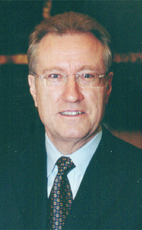Mr. Speaker, I am pleased to present my report on strengthening government review.
This document is our way of delivering on a promise.
Specifically, it is delivering on our promise to address some of the concerns expressed about review in the sixth report of the House of Commons Standing Committee on Public Accounts.
In a larger sense this document is also part of our effort to fulfil the government's election promise to Canadians. We told them that we would make government more efficient, that we would make it more affordable. We also promised we would make it more accountable.
To get government right, we need to know what works and what does not work. Feedback in the form of reviews, evaluations and audits is the best way for the government to learn and to improve. As well, regular reviews are an excellent opportunity to remind our employees of what the public service is all about: delivering quality service to the public and doing our best with the resources that are available.
Canadians want to know how their tax money is spent. They want to be assured they are getting value for those tax dollars. As the people's elected representatives, we have a right to an accounting on those expenditures. Through the public accounts committee we have been told we need timely, relevant and useful feedback on the effects of government policies and programs.
As the auditor general pointed out in his 1993 report, the government's feedback system does not always work as it should. This is why we are implementing many initiatives for things like quality management, a better expenditure management system, a modernized financial information system, a smarter use of modern information technology and of course with this report today, a strengthening of government review of its programs and services.
The government-wide program review process is bringing many significant changes to the way we govern. It is more than just a short term tune-up. Our research shows that those changes are making a real difference to the way we manage the public service. We are working to create a new management culture, one that is results oriented and one that is client focused.
Results oriented management means defining the results the government seeks to achieve in its programs. It means giving managers the resources and guidance they need to achieve those results. It means performance measurements, measuring and demonstrating actual achievements. It means ultimately finding a way to share what we learn with each other in the government and also with the public.
This report is our way of documenting these changes. It is the product of a thorough investigation. We consulted many different groups, both internally and externally. Our valued professional auditors, our evaluators and others in the review community played a key role in the evolution of this report.
What did we learn from these consultations? Our research showed that public service employees really do understand the importance of review.
This is apparent in the extensive amount of review activity carried out in the departments.
The Treasury Board is leading the evolution of review in three key ways. First, we are linking results information with our business plan process and other forms of decision making. Second, we are improving our ability to co-ordinate government-wide reviews. Third, we are enhancing our review and performance database so that it will be a convenient source of information on key reviews as well as lessons learned and best practices.
There is still room for improvement. We are committed to do what it takes to continue down the road this report puts us on. Administrative structures will be reinforced and results commitments will be more visible. In helping to provide the information for evaluation, we also need a better financial information system. We will continue to find better ways of measuring and making performance information available to Parliament.
Finally, we are going to help departments develop better accountability or control frameworks giving the kind of training and expertise that is needed. We are going to analyse the information gaps for issues where more than one department is involved.
Review is a powerful tool for change. It is integral to delivering quality services to Canadians. It is vital to the changes under way to improve our expenditure management system. We intend to continue our actions to strengthen government review and evaluation on government programs and services.

